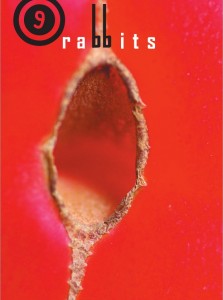Bulgarian Bestseller Brought to UK Book Market, Thanks to London Publisher
 Great literature opens our eyes to new worlds and invites us to share in the memories and dreams of people from all walks of life. To read the work of an author from an unfamiliar land can be to see the world from a new perspective and to experience a little of the lives of these people.
Great literature opens our eyes to new worlds and invites us to share in the memories and dreams of people from all walks of life. To read the work of an author from an unfamiliar land can be to see the world from a new perspective and to experience a little of the lives of these people.
The joy of discovery and the valuable insight that can be gained from reading literature in translation is recognised by London’s Istros Books, an independent publishing house focused on bringing translated fiction from Central and South-Eastern Europe to the English-speaking world. Among its latest releases is the Bulgarian bestseller, 9 Rabbits, from Virginia Zaharieva.
In her homeland, author Virginia Zaharieva is a revered academic and cultural beacon, with a record of excelling in various forms of the arts.
To reach the top of the tree is no mean feat in Bulgaria, where contemporary culture is recognised as being abundantly rich and diverse. The impressive programme of events at the Bulgarian Cultural Institute in London bears testament to that fact. Thanks to this English-language translation, Zaharieva’s work can now enjoy a far wider audience.
Bleak Communism in Rural Bulgaria
9 Rabbits is the powerful two-part story of a young girl in rural Bulgaria who endures all sorts of abuse and hardship to grow into a confident woman with an international career. While life with her elderly family can be bleak, the young girl maintains an endearing positivity, which is allowed to flourish due to a strong affinity with nature. As she grows into a women, we see that the girl’s sensory appreciation of life around her has developed into a craving for pleasure in its many forms, which she embraces with vigour.
The story opens in Communist Bulgaria in the 1960s, where Manda, representing the author Zaharieva in this memoir-cum-novel, lives an uncomfortable childhood with an overbearing Czech-Bulgarian grandmother, a wicked stepmother, some loathsome nuns, and the oppressions of the Soviet lifestyle. Thankfully, as an aid to lift her life out of the doldrums, Manda is able to detach herself from the often-horrid realities, by relishing the overwhelming joys of nature around her farmhouse and even finding amusement in her tormentors.
So far, this could be quite familiar from other tales of woe in the backwaters. But what sets this lively and nostalgic account apart from other tales of rural hardship and tough upbringings is the way that Zaharieva plays with our senses to paint pictures with taste and smell. By describing nature, food and the joy of eating with such simple clarity, and going so far as to include nearly thirty homely Bulgarian recipes, Zaharieva puts us right there beside her as each tale unfolds. Via these traditional recipes with their peculiar names (usefully set out in an accompanying recipe booklet), Zaharieva adds another dimension to the attitudes or feelings that are being shared at key stages in the story.
Girl Becomes Woman
The second half of this short novel sees the girl become woman, as she looks back on random affairs from a life spent in search of pleasure wherever she can find it. There is a polar shift in writing style, too, as Zaharieva moves from the simple first-person narrative used so effectively to tell the story of young Manda, to a free-form mix of poetry, quotations and even sketches to achieve the maximum effect at each given time. Thankfully, the sensual level of the book, although taking on a very different hue, remains as a thread to bind together the two halves of this life ongoing.
In her uncompromising style and language, Zaharieva graphically portrays episodes of sex, drugs and journalism, from her sexual awakenings, relationships and childbirth, to her rich experiences as a jobbing writer living in Paris, Moscow and Vienna. Where the first half of the book wrapped the reader in warm emotions and memories, even when recalling horrible memories, the second half assaults the senses with deliberately bold clarity – as well as a heady dose of dark humour.
Vibrancy From Translator Angela Rodel
Credit should be given to Angela Rodel’s translation, which succeeds in conveying the vibrancy and boldness of Zaharieva’s language and writing style. Indeed, the author herself confirmed this was the case when we met in London. At times, I did find it irritating when the British and American vernacular is used side by side, but this was a minor and maybe pedantic annoyance.
When 9 Rabbits was originally published in 2008, it quickly became that year’s bestseller in Bulgaria. Accolades accompanied book sales and it is now seen as one of that country’s most important pieces of modern literature.
Although a short read, 9 Rabbits is story that lingers far longer than the time taken to share in Zaharieva’s journey. Long after the book has been closed and the story has settled in the mind, the accompanying recipes remain to add a new dimension to the outlandish tales. In 9 Rabbits, Virginia Zaharieva has served up a story to be savoured by readers beyond her borders.
* For more about this and forthcoming literature in English translation, visit Istros Books


No comments yet.
Be first to leave your comment!